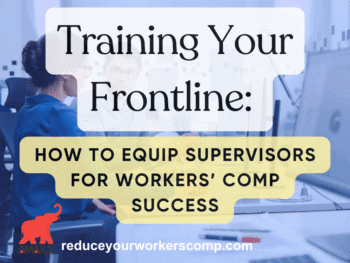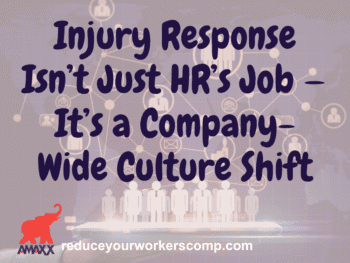
10 Requirements For Employees Injured At Work
- Know what to do if they are injured on the job
- Sign an acknowledgement of these responsibilities
- Seek medical care from the employers medical provider (or their own primary treating physician if allowed by law)
- Keep the employer informed and updated of their condition/status
- Complete forms required by the employer truthfully.
- Attend weekly meetings to keep the employer informed of their condition and any obstacles to return to work full duty
- Participate in transitional duty (this must be a condition of employment).
- Attend all medical and rehabilitation appointments.
- Return to work in either transitional duty or full duty as soon as medically able.
- Other tasks as required by the employer and allowable by law such. Each state is different.
Remember, communication is the most powerful to gain buy-in and bring employees on board with participation in your workers’ comp management program.
Main Communication Message
“Our employees are our greatest asset, we are sorry one of our employees was injured, and we need your help getting them back to work.”

Contact: mstack@reduceyourworkerscomp.com.
Workers’ Comp Roundup Blog: https://blog.reduceyourworkerscomp.com/
Live Stream WC Training: http://workerscompclub.com/livestreamtraining
©2017 Amaxx LLC. All rights reserved under International Copyright Law.
Do not use this information without independent verification. All state laws vary. You should consult with your insurance broker, attorney, or qualified professional.



























